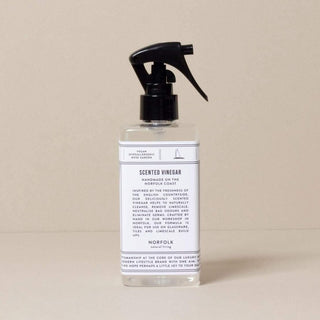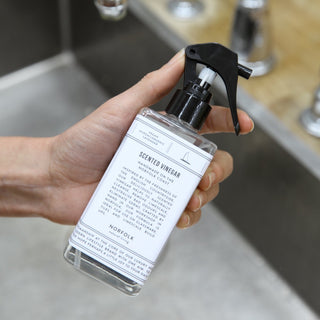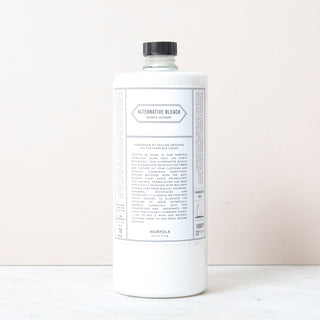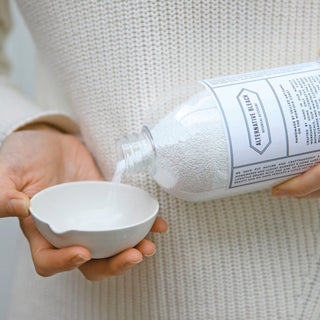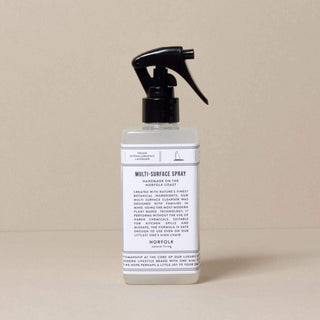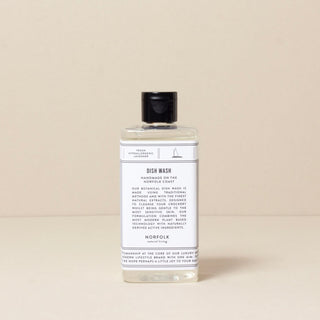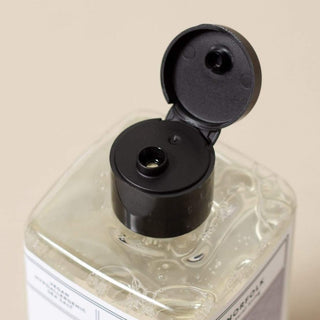
Cleaning with vinegar has been a household hack since time immemorial. Long before schoolchildren were dropping pennies into glasses of coke and watching with fascination as they were cleaned to a perfect shine, people have known that vinegar makes a fantastic household cleaner.
But how effective is it, really? Can your entire cleaning cupboard be replaced by a bottle of vinegar? And is it possible to clean with vinegar without filling your house with that chip shop smell?
Let’s take a look.
How does vinegar work for cleaning?
Before we look into the possibilities and limitations of vinegar as a cleaning product, we should take a moment to understand how the process actually works.
As you probably know, vinegar is an acid. It is actually quite strong. Not strong enough to worry about. But enough to help you with those tricky jobs around the house.
It is the acetic acid in vinegar that makes it so effective. Acetic acid is formed during the second phase of fermentation. If you open a bottle of wine (make it a cheap one!) and leave it on the side for long enough, it will continue to ferment until it eventually tastes just like vinegar. At this point, acetic acid has been formed by the sugars that made your wine alcoholic in the first place. This is one of the ways that vinegar is made.
A lot of the stains, marks and grease spots around your house are mildly acidic. Far more than are alkaline. The fact that acids are dissolved when they come into contact with another, more powerful acid is why vinegar is such a good cleaning product to use around the home.
How good is vinegar for cleaning?
In short? Very. In fact, it’s so good that it would actually be dangerous to use it in some areas of your house. We will come to that a bit later.
Because just about everything you spill in your home (plus the oils etc that generally cause marks around the home) are mildly acidic, vinegar makes light work of cleaning them away. Just spray or rub it on and wipe it off a few seconds later.
Some examples of things you can clean it with are metal pans (it makes light work of that burnt on food), stains in your fridge (they are food based so slightly acidic), windows (for a great streak-free finish) and it is even great for getting wine stains out of carpets. That one has been tested many times.
What shouldn’t you clean with vinegar?
You should never use it to clean granite or marble countertops. They are easily soluble (despite marble seeming really hard - it is incredibly easy to chemically damage). You will end up with etched and discoloured surfaces. The same goes for stone flooring.
Strangely, it isn’t a good idea to try and clean up egg spills with vinegar. It’s not dangerous, just incredibly messy. The egg reacts to the acidity and coagulates, meaning it ends up clinging onto whatever you are removing it from.
It can also weaken knives, making them go blunt quicker.
How to clean with vinegar (without the smell)
No matter how much of a wonder-cleaner it is, nobody would use vinegar if it left their home smelling like a chip shop. So obviously, there is a solution.
Firstly, white vinegar (which is what people normally use for cleaning) doesn’t smell as much anyway. But people who really know what they are doing tend to opt for a Scented Vinegar product. All of the amazing cleaning power with your choice of essential oil scent.

